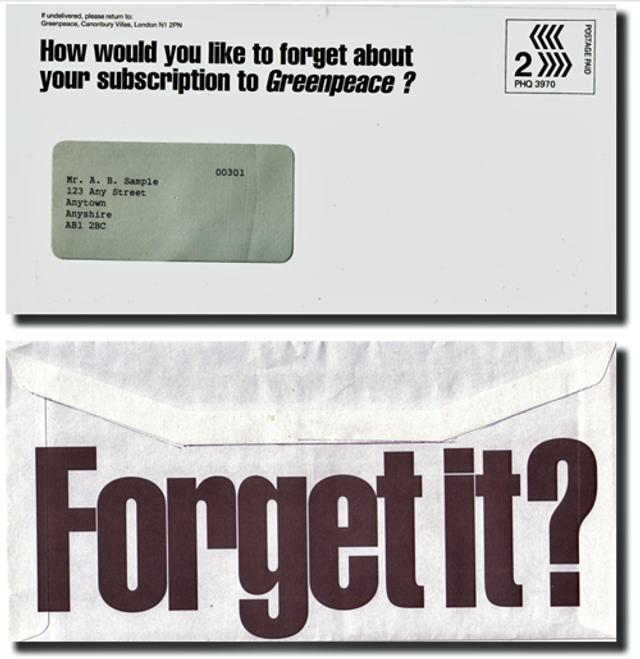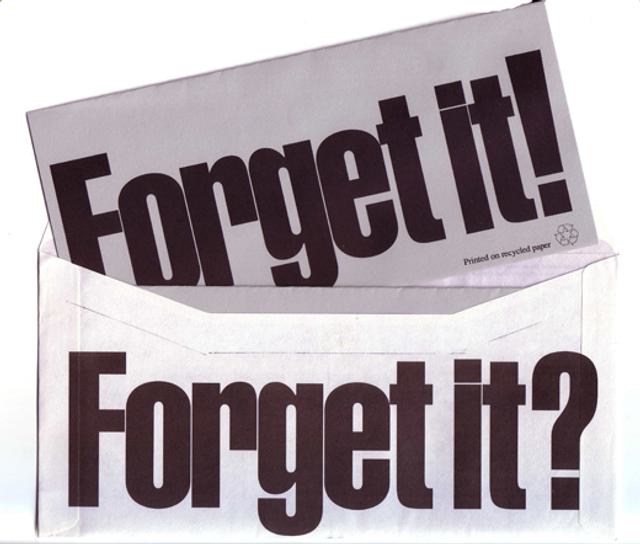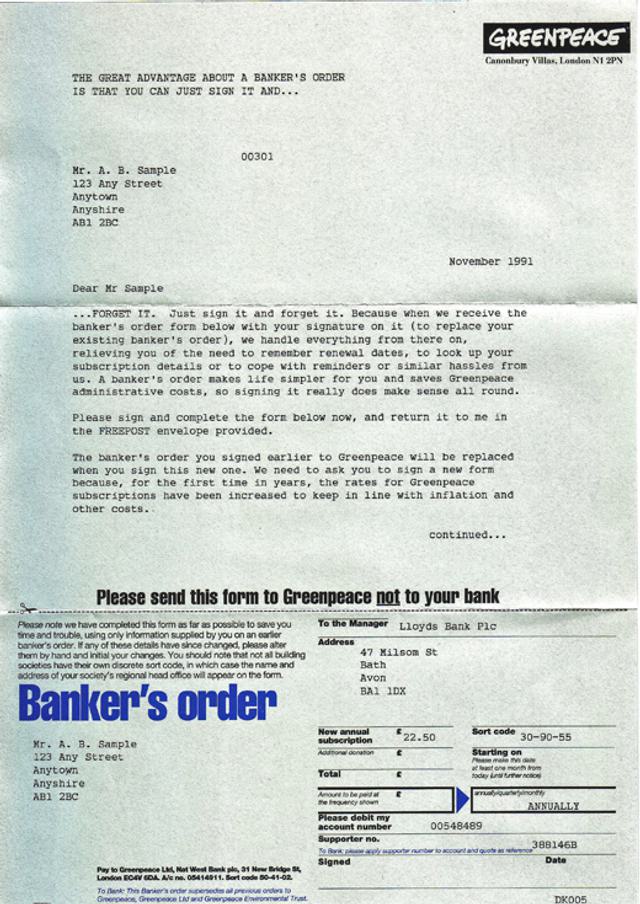Greenpeace UK’s ‘forget it’ pack reactivation mailings
- Exhibited by
- SOFII
- Added
- August 19, 2009
- Medium of Communication
- Direct mail.
- Target Audience
- Individuals, planned gift.
- Type of Charity
- Environmental/animals.
- Country of Origin
- UK.
- Date of first appearance
- 1991.
SOFII’s view
It’s easy now to forget that as recently as 20 years ago giving by direct debit (aka electronic funds transfer, PAC and autogiro) was a comparative rarity. The paradigm for most fundraisers with large donor bases was the annual renewal cycle, with a renewal ‘banker’ mail pack being sent out on a specific (usually anniversary) date, followed by up to a dozen ‘reminders’ all with increasing urgency, which tried to entice or cajole donors into continuing their support. This costly, wasteful system is still the norm for many organisations, particularly in North America, but it is dying out as the obvious benefits of automatic electronic renewal are increasingly understood and appreciated. This is the first mailing from a particularly good example of a renewal series, from Greenpeace UK.
Creator / originator
Burnett Associates working with Annie Moreton and Charlotte Grimshaw at Greenpeace UK.
Summary / objectives
This exhibit is part of a series of increasingly strident requests to donors, to renew their support for the coming year and, more importantly, to switch to an automated payment method.
Background
Greenpeace UK at the time had a large but very flat supporter base, most people were just paying an annual subscription fee of £15.00, which was all they had ever been asked for. This was before the launch of Greenpeace’s high value monthly giving scheme, Frontline. Renewal was seen as a key annual activity, with particular emphasis on trying to get supporters to sign banker’s orders (as in this example) or, later, direct debits. It was felt that after this inertia would work in Greenpeace’s favour rather than against it, which was happening with the cash donation system that was prevalent at the time.
A bankers’ order (an order to your bankers, hence the position of the apostrophe) is an instruction to your bank to make a fixed payment from your account on a given date. A direct debit is authority for the charity’s bank to literally reach in (electronically) to the bank account of your donor to remove a sum of money. Initially direct debits were fixed. Then they became variable (the amount can be changed by the charity, though the donor always has the right to object and have funds re-credited. The latest development is paperless direct debit, particularly handy for telephone campaigns.
These developments in the mechanics of fund collection are seen as tedious and administrative by many fundraisers, but they have had more impact on the effectiveness and efficiency of fundraising than all the world’s creative directors, piled on top of each other, have had since time began
Special characteristics
Very ‘in your face’, very Greenpeace.
Influence / impact
These were expensive to produce and took a lot of organising, so provided a powerful incentive to move to regular monthly giving first by standing order, then by direct debit.
Details
Results are not available but this series worked much harder than the renewal series it replaced.
Merits
The entire series is a good example of an important fundraising mechanism in the process of being replaced by a better way of doing things.
Other relevant information
Please contact Carolina if you can add any detail to this exhibit, or to any of the following exhibits.
 View original image
View original image
 View original image
View original image
Also in Categories
-
- Individual donors


















